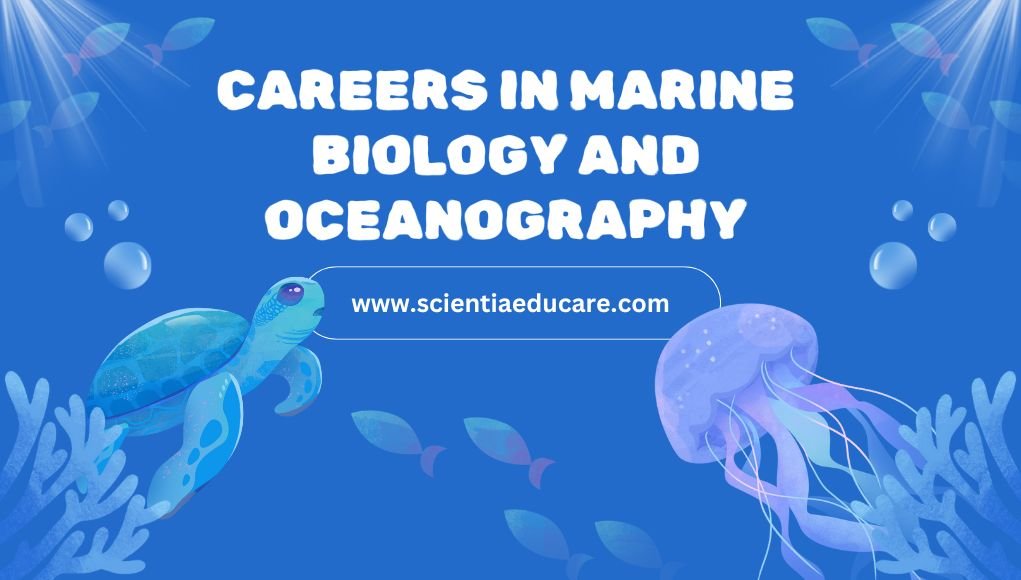Marine biology and oceanography are dynamic fields dedicated to understanding the complexities of ocean ecosystems and the myriad life forms they support. As global awareness of environmental issues grows, so does the demand for professionals in these disciplines. This article delves into the various career paths available, top educational institutions offering relevant programs, and resources for further exploration.
Careers in marine biology and oceanography,
Marine biology job opportunities,
Oceanography career paths,
Environmental conservation careers,
Marine ecosystems research jobs.
Understanding Marine Biology and Oceanography
Marine Biology focuses on the study of marine organisms, their behaviors, and interactions with the environment. It encompasses various sub-disciplines, including marine ecology, physiology, and conservation.
Oceanography is the broader study of the ocean’s physical, chemical, geological, and biological aspects. It is divided into four primary branches:
-
Physical Oceanography: Examines ocean currents, waves, and tides, and their influence on climate and weather patterns.
-
Chemical Oceanography: Studies the chemical composition of seawater and the cycles of various marine elements.
-
Geological Oceanography: Explores the structure and composition of the ocean floor, including plate tectonics and marine sediments.
-
Biological Oceanography: Investigates the relationships between marine organisms and their environments, often overlapping with marine biology.
Career Opportunities in Marine Biology and Oceanography
A career in marine biology or oceanography offers diverse opportunities across research, conservation, education, and industry. Here are some prominent roles:
Research Positions
-
Marine Biologist: Conducts studies on marine organisms, their behaviors, and ecosystems. Research can be field-based, laboratory-based, or a combination of both.
-
Oceanographer: Specializes in one of the branches of oceanography to study ocean processes and their broader implications.
Conservation and Environmental Management
-
Marine Conservationist: Works to protect marine environments through policy development, habitat restoration, and public education.
-
Environmental Consultant: Advises organizations on environmental best practices and compliance with regulations.
Education and Outreach
-
Marine Educator: Teaches marine science topics in academic institutions or through public outreach programs.
-
Science Communicator: Translates complex marine science concepts into accessible information for the public.
Industry and Applied Sciences
-
Fisheries Scientist: Studies fish populations and advises on sustainable fishing practices.
-
Marine Policy Analyst: Evaluates and develops policies affecting marine environments and resources.
-
Aquaculture Specialist: Focuses on the breeding and rearing of aquatic organisms for commercial purposes.
For a more comprehensive list of marine biology careers, you can refer to resources like Indeed’s overview of marine biology jobs.
Top Educational Institutions Offering Marine Biology and Oceanography Programs
Pursuing a career in these fields typically requires specialized education. Here are some renowned institutions worldwide offering relevant programs:
United States
-
University of California, San Diego (UCSD): Home to the Scripps Institution of Oceanography, UCSD offers comprehensive programs in marine biology and oceanography.
-
University of Miami: Offers specialized programs in marine conservation and marine biology, leveraging its unique location in South Florida.
-
University of Oregon: Provides a baccalaureate degree in Marine Biology with hands-on, field-based learning opportunities.
Australia
-
James Cook University: Known for its prestigious marine biology programs and access to the Great Barrier Reef, offering unparalleled research opportunities.
-
University of Queensland: Offers world-class marine biology programs focusing on coral reef ecosystems, marine ecology, and conservation.
United Kingdom
-
University of Plymouth: Provides excellent marine biology programs emphasizing marine science, sustainable fisheries, marine conservation, and marine animal physiology.
-
University of Southampton: Recognized for its strong programs in oceanography and marine biology.
China
- Ocean University of China: Offers specialized programs in marine and freshwater biology.
For a more detailed list of top marine biology schools, you can refer to CollegeVine’s compilation.
Job Prospects and Resources
The demand for marine biologists and oceanographers varies globally, often influenced by regional environmental priorities and funding availability. Positions can be found in government agencies, non-profit organizations, academic institutions, and private industry.
For instance, the National Oceanic and Atmospheric Administration (NOAA) in the United States employs a range of professionals in marine sciences. Similarly, organizations like the Hebridean Whale and Dolphin Trust in Scotland offer unique roles in marine conservation.
Job boards and career resources such as Indeed and MarineBio regularly list opportunities in these fields.
Further Reading and Resources
To deepen your understanding and stay updated on the latest developments in marine biology and oceanography, consider exploring the following resources:
-
MarineBio Conservation Society: Offers extensive information on marine life, research, and conservation efforts.
-
NOAA’s National Ocean Service: Provides educational materials and updates on oceanographic research and policies.
-
PLOS ONE Marine Biology Collection: Features open-access research articles on various marine biology topics.
-
The Guardian’s Earth and Marine Sciences Rankings: Offers insights into top UK universities for earth and marine sciences.
Embarking on a career in marine biology or oceanography is both challenging and rewarding. With the right education and a passion for the marine environment, you can contribute significantly to our understanding and preservation of the world’s oceans.
